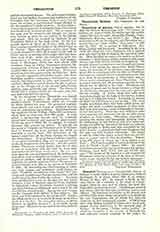

Theodulf (THEODULFUS, THEODULFE), Bishop of Orleans, a writer skilled in poetic forms and a learned theologian, b. in Spain about 760; d. at Angers, France, December 18, 821. By descent a Goth, he became before 794 a member of the court of Charlemagne, where he was, next to Alcuin, the most distinguished and learned person. Charlemagne granted him (about 798) the Bishopric of Orleans and several abbeys. He labored successfully in his diocese as a reformer both of the clergy and people, as is shown by his two Capitularies, one of which has forty-six chapters; he also encouraged schools. In 798 he was sent, with Bishop Leidrad of Lyons, as a royal messenger (missus dominicus) to the southern part of France. In his poem, “Versus contra judices”, in which he complains of the severity of Frankish law and addresses earnest warnings to the judges, he gives an account of his experiences while on this mission. As a writer on theology he took part in the dispute over the term Filioque (the procession of the Holy Ghost from the Son as well as from the Father) and defended this doctrine at the request of Charlemagne in the treatise, “De spiritu sancto”. He also wrote at the wish of the emperor, “De ordine baptismi”, a description of the ceremonies at baptism. He is further, apparently, the author of an exposition of the Holy Mass and of the Creed. As regards language and metre he occupies the first place among the poets of the Carlovingian era and distinguished himself by spirit and skill; particularly interesting are the letters which he wrote in the form of poems giving an animated picture of the life at court. His hymn for Palm Sunday, “Gloria, laus, et honor” (Analecta hymnica, L, 160 sq.), came into liturgical use. He is also known as a patron and lover of art. He was still in favor at the beginning of the reign of Louis the Pious, but later, being accused of sharing in the conspiracy of King Bernard of Italy, was consequently deposed in 818 and exiled to Angers.
KLEMENS LOFFLER

